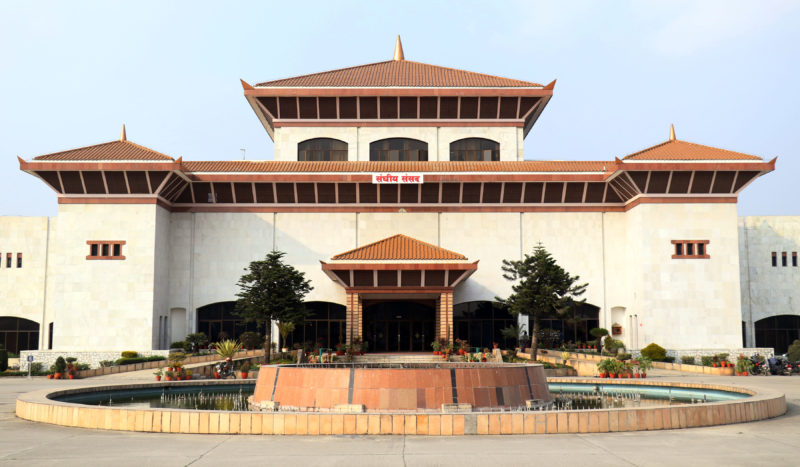Contradictory bills tabled before investment summit
Kathmandu, February 26
In a bid to appease foreign investors just before the investment summit is about to be organised on March 29-30, the government has rushed into introducing a couple of legal provisions which are contradictory to each other and may instead confuse the very investors that it wants to attract.
The two contradictory provisions are related to the foreign investment amount that different government agencies can approve and also to the issuance of hydropower licences.
Some provisions in the two bills that the government has recently tabled at the Parliament for endorsement — Foreign Investment and Technology Transfer Bill and Public Private Partnership and Investment Bill — are contradictory to each other.
While the Foreign Investment and Technology Transfer Bill has authorised the Industry and Investment Promotion Board to approve foreign direct investment (FDI) of above Rs five billion and up to Rs 10 billion, the Public Private Partnership and Investment Bill states that FDI worth more than Rs six billion has to be approved by the Investment Board Nepal (IBN).
Amid the private sector saying that policy contradiction and ambiguity are the major setbacks for the country in drawing desirable investments, such contradictory provisions in crucial investment-related laws are certain to discourage potential investors in the country, both domestic and foreign.
Hopefully, the concerned contradictions in the two crucial laws will be addressed before it gets endorsed by the Parliament.
Similarly, another provision on the Public Private Partnership and Investment Bill related to issuance of hydropower licence is also contradictory. This bill has authorised IBN to issue the generation licence for hydel projects with capacity of above 200 megawatts that contradicts a provision in the Electricity Act which states that the Ministry of Energy, Water Resources and Irrigation will issue licence for all hydropower projects.
In December 2017, the dispute got worse after IBN asked the Energy Ministry for the implementation rights for the 688- MW Betan Karnali and 617-MW Bheri-1 hydropower projects claiming it held the sole authority to execute schemes with a capacity of 500 MW or more.
After the Energy Ministry issued survey licences for the Betan Karnali and Bheri-1 projects to Betan Karnali Sanchayakarta Hydropower Company and Vidhyut Utpadan Company respectively, IBN asked it to send the related documents. Betan Karnali Sanchayakarta Hydropower Company is a subsidiary of the Employees Provident Fund.
Talking to The Himalayan Times a few days back, Toyam Raya, director general at the Department of Customs, had said that policy ambiguity is the major problem that has been hindering the growth of industries and businesses in Nepal. “One policy of the government talks one thing while the other policies talk of other things. As a result, not only have industrialists been facing hassles, but customs officials too face problems to give clearance to goods,” Raya had said earlier.
Meanwhile, Dinesh Bhattarai, spokesperson for the Ministry of Industry, Commerce and Supplies, refused to comment on the provision of the Public Private Partnership and Investment Bill citing that this bill had been prepared and tabled at the Parliament by the Ministry of Finance (MoF).
Hari Bhakta Sharma, president of Confederation of Nepalese Industries, said that contradictions in policy are the result of lack of effective coordination between different government agencies while formulating different polices.
“Ambiguous policies are always a setback to business and investment.
The government should identify contradictory provisions among different existing and yet to be endorsed policies and ensure uniformity among laws,” said Sharma.
As per the proposed Public Private Partnership and Investment Bill, the government will establish a one-window system to facilitate public private partnership project investors regarding project survey, agreement and investment permission, among other issues until the project is completed.






